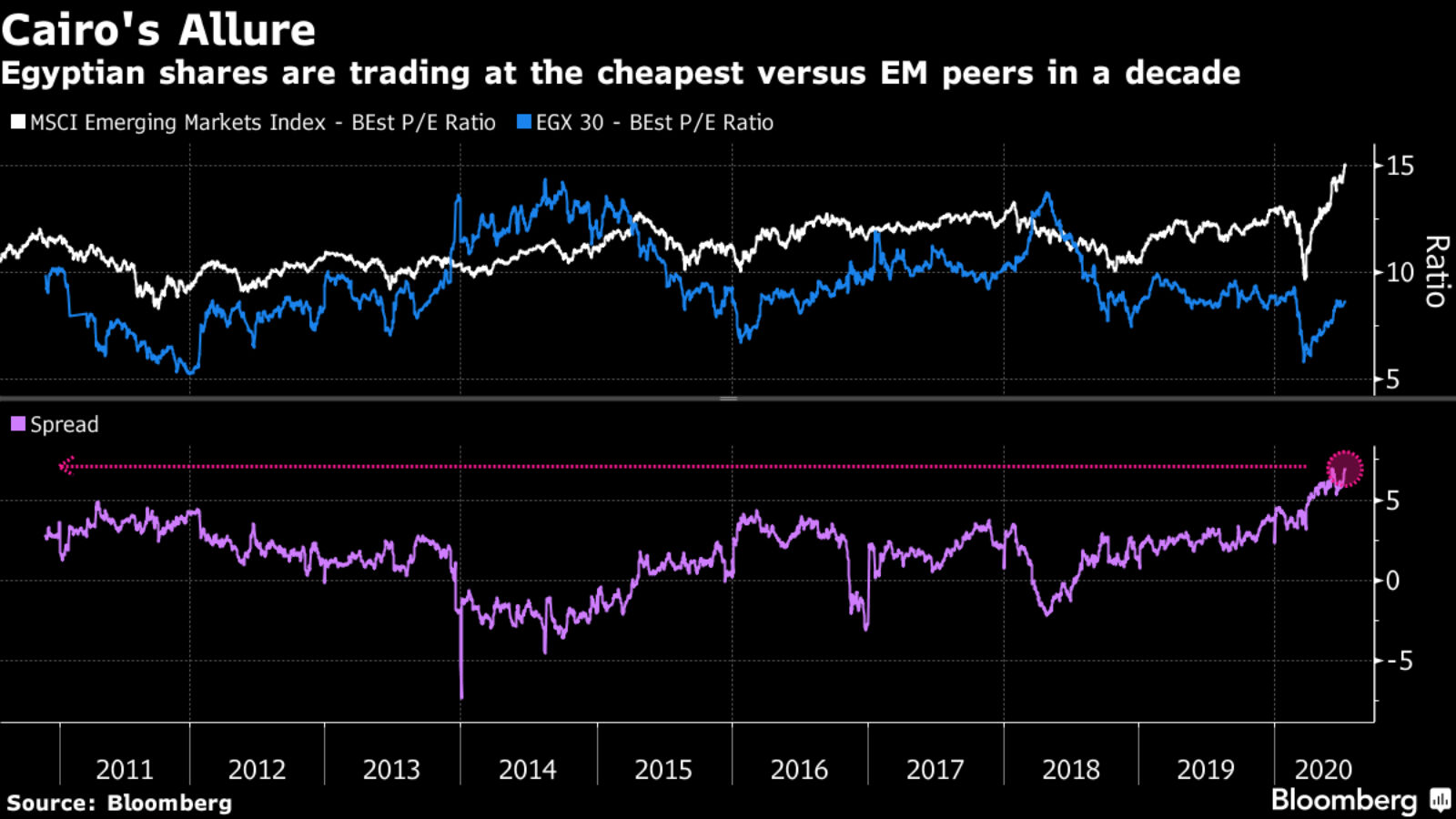Egyptian equities undervalued after EGX covid tantrum -Azimut

Egyptian equities undervalued after EGX’s covid tantrum -Azimut: Covid-19’s pummeling of the EGX earlier this year has left Egyptian equities sorely undervalued and divorced from the strong corporate fundamentals. This is according to Ahmed Aboul Saad, the managing director of Azimut’s Egypt-focused equity fund, who spoke with Bloomberg on why the Italian asset manager has chosen to dive into Egyptian stocks. The top independent asset manager in Italy, Azimut earlier this month announced that it has launched a USD 50 mn fund dedicated to investing in 20-30 Egyptian stocks.
Egypt is bucking the global trend in valuations: The case of the EGX is a curious one, with the market running counter to global patterns. Around the world, stock prices have been climbing despite huge uncertainty over earnings and the trajectory of the economic recovery. “That also happens in Egypt, but the other way around — valuations are far below the financial performance of the companies,” Aboul Saad said. The EGX suffered a blow earlier this year more than five times the magnitude of the average for emerging markets, making Egyptian companies underpriced in comparison to their peers, he said.
This situation could prove to be a unique selling point for investors, especially for the thousands of individual Egytian expats who may wish to invest in their home country — they’re Azimut’s target market, according to Aboul Saad. Remittances from Egyptian workers abroad are currently under pressure thanks to covid, but are still significant: Egypt is one of the five-largest beneficiaries of worker remittances globally.
Azimut expects Egypt’s economy to grow at a 3-3.5% clip this year: The economy is “very resilient” despite the shock caused by covid-19, Aboul Saad says. “That’s because 80% of GDP comes from local consumption, and you have population growth that boosts consumption, by nature,” he adds. In turn, Aboul Saad sees that the major investment themes going forward are “local consumption and population growth.”
On the state privatization program: Aboul Saad’s fund is eager to see more IPOs than secondary stake sales in already-listed companies when the stalled state privatization program resumes. “I really hope the government can resume the program with new listings, not by selling shares in already listed companies,” he says. The program is on pause until further notice.